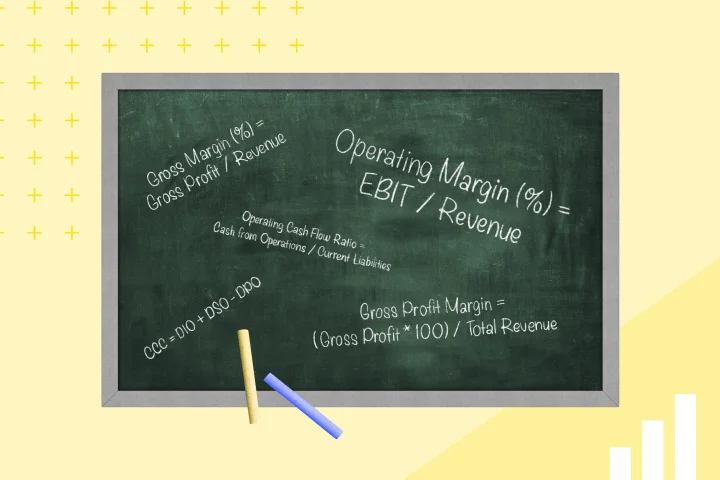Spend management software can be a valuable tool for improving transparency and accountability. It can also help you cut costs, creating savings opportunities, maximize value from suppliers, and ensure timely payments. Perhaps the biggest benefit is that it allows you to eliminate repetitive manual tasks through automation.
When you consider all of these advantages, implementing spend management software is an easy choice. But with so many different tools available, how can you ensure that you’re picking the right one? Here are some tips to help you choose the best spend management software for your business.
Determine Your Spending Needs
Before you set out to find the right tool, you should consider the nature of your expenses and the features you’re looking for. Ask yourself the following questions:
- What kinds of expenses are you going to manage?
- Do you want to sort your expenses into categories?
- What payment methods do you use?
- How many payments do you make each month?
Be as thorough as possible when answering these questions. Once you have a clear idea of what you need, you can start looking for spend management software that fulfills your requirements.
Select a Cloud-Based Solution
On-premise solutions tend to be expensive and not easily scalable. They can also create issues with integration and accessibility. Instead, choose cloud-based spend management software that ensures a seamless flow of data. It should also let you optimize accessibility by allowing secured access from outside the office. This way, your employees will be able to upload and access data from anywhere.
What’s more, you can easily scale cloud-based systems by adding additional storage and resources. This will allow you to spread out the workload across several servers to maximize performance.
Ensure Mobile Compatibility
Over 85% of Americans own a smartphone, and that includes your workforce. Choosing a spend management solution with mobile capability will likely improve productivity, ease implementation, and help you stay competitive as your company grows. Most modern software is either compatible with smartphones or provides its own Android or iOS apps, and you should expect the same from your expense management software.
With the right tool, your employees will be able to upload digital receipts and invoices from their smartphones, or send photos of paper receipts. You’ll be able to access your data and even create reports on the go—no need to stay glued to your laptop. You can even send mobile reminders to employees to upload proof of payment.
Go for Approval Management
Spend management tools do more than just track expenses. Many have advanced features like auto-approvals or pre-approvals, which will let you manage the whole approval system and route requests to the right parties. You can also create pre-approved expenses to save time, and approve or cancel questionable expenses with just one click. You’ll even be able to see who initiated and approved each expense, so you’ll know exactly how funds are being used.
Prioritize Real-Time Tracking
Businesses can’t afford to wait until the end of the month to work out their expenses. You need something that records data as you pay and provides up-to-date information—in other words, real-time tracking. Spend management software that includes this feature will help you stay on top of your expenses and find any opportunities for savings as soon as they arise. It will also allow you to instantly create reports at any given moment.
Identify Your Organizational Needs
It’s important to consider your organizational needs, which may depend on the size and intricacy of your supply chain. For example, a business that works with only one type of item isn’t going to need as much organizational power as one that works with multiple items or products. Whatever software you choose has to be able to handle your specific needs, both now and in the future; otherwise it won’t last long.
Evaluate Ease of Use
Your spend management system must be easy to use. All the fancy features and money-saving tricks in the world are worthless if your employees struggle to use the software. You have to consider the potential costs of training and mistakes that will eat into your profits. But if you pick an intuitive and user-friendly tool, these issues can be avoided.
Look for Integration With Other Systems
To truly optimize your spend management processes, the software you select should have the capability to integrate with your other tools. If it can seamlessly fit into your existing workflow, you’ll save tons of time and money in the long term. A lack of integration isn’t necessarily a dealbreaker, but it’s definitely something you should consider as part of the decision-making process.
Consider Scalability
A certain spend management platform might work now, but that doesn’t necessarily mean it will work in the future. Will it be able to grow alongside the business? If not, you should look elsewhere. No company plans to stay stagnant; the goal is always growth, and any software you use should account for that. This will help you avoid having to switch to a new solution later and retrain all your employees accordingly.
Assess Customer Support
It’s vital to have access to quality customer support. Check reviews online to see what other customers are saying, and test out the support channels yourself if possible. Great customer support is a sign that the company cares about its users, and it will help you avoid frustration in the future. If you ever run into issues, you should be able to get prompt and comprehensive answers to avoid losing time, money, and energy on troubleshooting.
Don’t Forget About Cost
As obvious as it may seem, cost is an important factor. After all, there’s no point paying for a tool you can’t afford in order to optimize your spending. It’s vital to review your budget and see how much money you can realistically dedicate to spend management software. Only consider the tools that are within your budget, and make sure that you’re getting your money’s worth from whichever solution you choose.
Final Thoughts
To choose the best spend management software for your business, consider your organizational needs, budget, and other unique requirements. Look for useful features like real-time tracking, mobile capability, and approval management. We suggest choosing a cloud-based solution so that everyone can access and share data seamlessly.
For example, Mesh’s expense management software helps you track SaaS and on-demand payments, includes advanced analytics, and provides complete control over your budget. Take a look to see if it might be right for you.
FAQs
Spend management software improves transparency, accountability, and cost-cutting efforts. It automates tasks, ensures timely payments, maximizes supplier value, and creates savings opportunities.
Consider spending needs, choose a cloud-based solution for scalability and accessibility, prioritize mobile compatibility, approval management, real-time tracking, organizational needs, ease of use, integration with other systems, scalability, customer support, and cost.
Cloud-based solutions are cost-effective, scalable, and provide seamless integration and remote access. They enable easy data sharing and can be expanded as needed.
Mobile compatibility improves productivity, implementation ease, and competitiveness. It allows for easy uploading of digital receipts, accessing data on the go, and mobile reminders for proof of payment.
Approval management ensures efficient routing of requests, pre-approved expenses, and visibility into the approval process. It saves time, enables easy approval or cancellation, and provides clear ownership of expenses.
Real-time tracking keeps businesses informed, identifies savings opportunities, and aids in budgeting and decision-making. It provides up-to-date information for effective cost management.
Integration with other systems improves workflow efficiency, saving time and money. It enhances data flow and streamlines spend management processes.
Scalability ensures the software can grow with the business, avoiding future system changes and retraining. It accommodates increased data volume, user growth, and evolving needs.
Quality customer support provides prompt assistance, preventing frustration and saving time and money. Checking reviews and testing support channels helps assess the level of support provided.
Cost determines affordability and feasibility. Select a solution that delivers value within the budget to optimize spending.
-
Get the latest blogs from Mesh by subscribing to our newsletter







